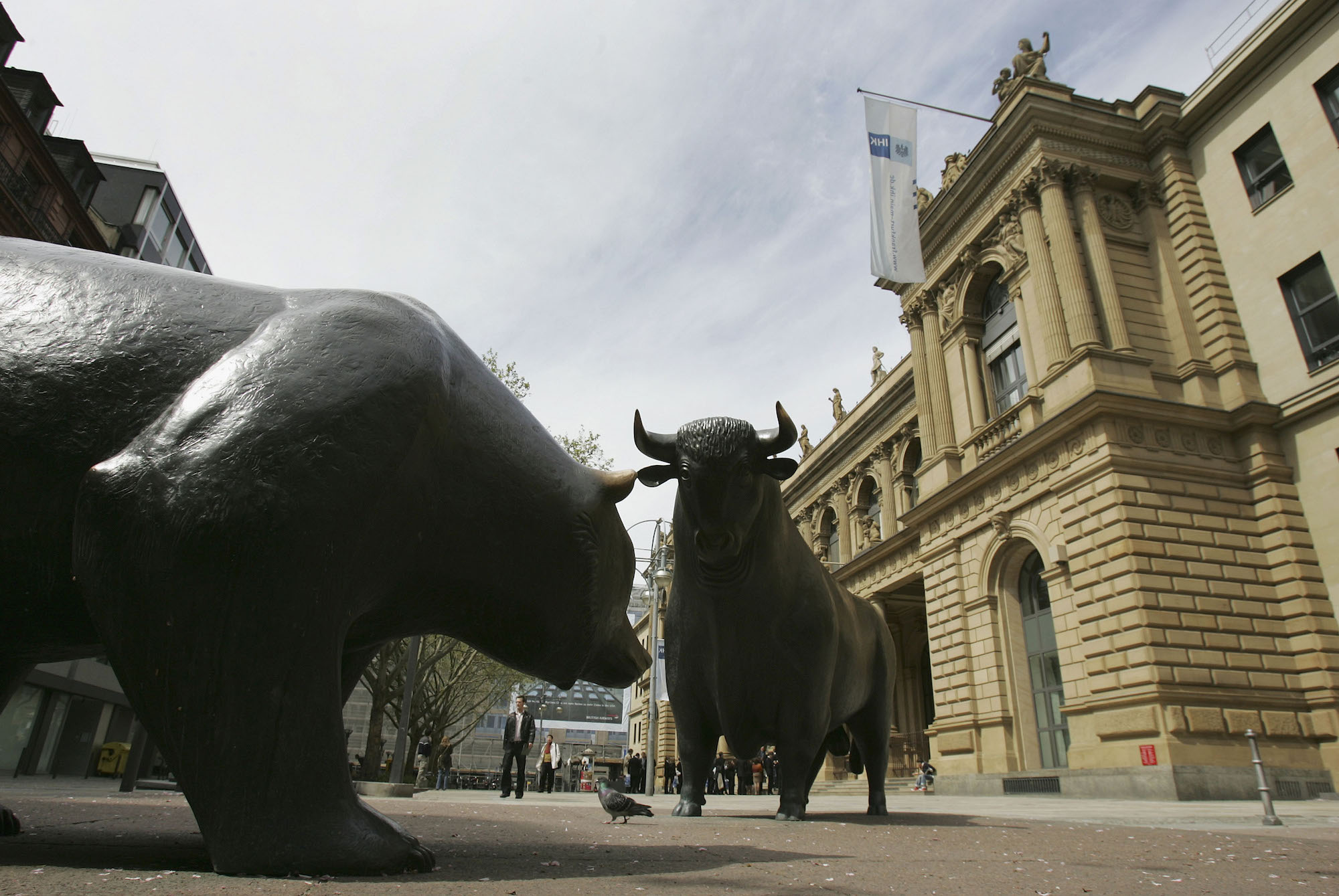- A survey of stock-market sentiment managed by the American Association of Individual Investors shows that traders are now the most bearish on equities since December.
- The AAII Bull/Bear Ratio plunged into negative territory this week, meaning more investors expect stocks to decline over the next six months than expect a rise.
- The decline in sentiment has coincided with increased market volatility that’s expected to last through the summer.
- Read more on Markets Insider.
A closely watched sentiment indicator is flashing a sign that investors are wary of where the stock market is headed.
The AAII Bull/Bear Ratio – maintained by the American Association of Individual Investors – plunged into negative territory this week, indicating that more investors expect stocks to decline over the next six months than expect a rise.
Sitting at -26.54% – the spread between the 21.66% bullish and 48.2% bearish sentiment seen in the AAII survey – the measure is now the lowest since December. It also experienced its biggest week-over-week percentage-point decline since then. For context, the spread sat at 14.38% for the five days ended August 1.
Extreme weekly readings and large shifts like this are a red flag to the investment community.
The bearish reading comes after a tough week for global markets amid escalating trade-war tensions and a burgeoning currency war. On Monday, US equities posted their worst performance of the year after China let the yuan slide past a key psychological level versus the US dollar. Markets whiplashed again on Wednesday on fears of a global recession after a number of central banks slashed interest rates.
The market has been particularly on edge since the Federal Reserve's last interest-rate decision, which saw the central bank issue a 25-basis-point cut. Chairman Jerome Powell's subsequent signals that the Fed was not embarking upon an extended easing cycle disappointed investors expecting more cuts this year.
"Going from the extreme kind of optimism we had seen, it could only go one way," Olivier Marciot, an investment manager at Unigestion, told Markets Insider. "It was down."
The question now, he said, is if the reversal in sentiment is just noise or if it is a signal that could ultimately impact the overall macro picture.
The sharp drop in bullish sentiment from last week is also reflective of increased market volatility. The Cboe Volatility Index - or VIX, commonly referred to as the stock market's fear gauge - spiked 40% Monday amid global turmoil.
"Volatility probably for the month of August and September is here to stay," said Marciot.
Further, noted market pundit Ed Yarden of Yardeni Research focused on the sharp decline in market sentiment in his Thursday note.
"Nearly all of this week's move out of the bullish camp went to the correction camp," he wrote.

